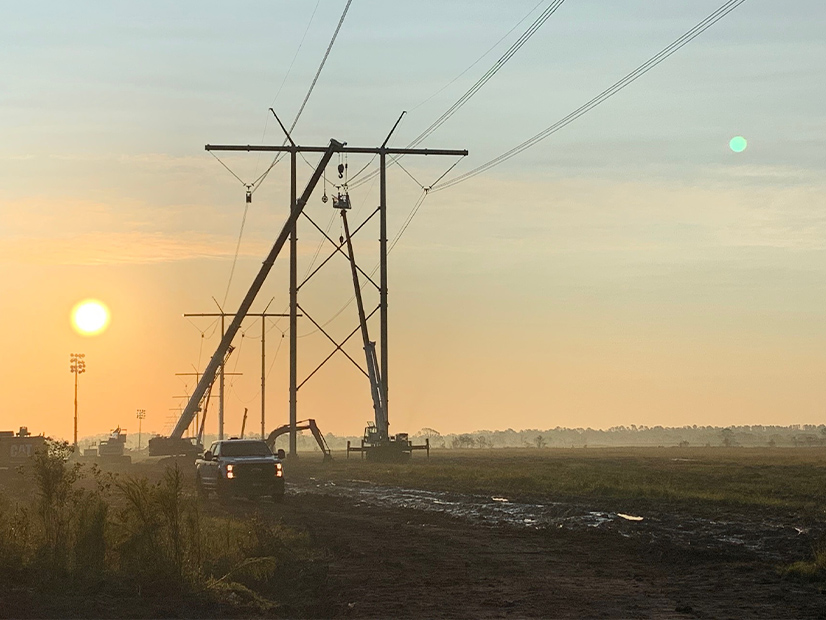Entergy has responded to criticism filed at FERC that the utility is purposefully undermining transmission planning in MISO South.
In a statement to RTO Insider, Entergy countered Southern Renewable Energy Association’s (SREA) claim that the company is deferring and hindering the region’s transmission planning by saying it “strongly supports” investment in transmission, but that it must pay attention to costs.
The company said that since joining MISO in late 2013, it has invested $6 billion in new transmission infrastructure, resulting in nearly 600 miles of new lines. Entergy said that level of investment is above the industry average.
“Entergy strongly believes that new transmission will play an important role in MISO South as we integrate additional solar resources and evolve our generation portfolio to be more sustainable,” it said. “We recognize that creating a carbon-free future calls for more investments in renewable energy.”
Commenting in FERC’s Notice of Proposed Rulemaking on transmission planning, SREA accused Entergy of habitually proposing new generation plants just in time to thwart MISO transmission recommendations, thus harming reliability in MISO South. (See SREA Criticizes Lack of MISO South Planning in FERC Tx Proceeding.)
Entergy said it’s working with its regulators and stakeholders to “responsibly expand access to renewable energy … under a framework that balances reliability, affordability and environmental stewardship.”
The company said MISO’s planning decisions have “major cost implications to our customers, nearly 30% of whom live in poverty and already struggle to pay their monthly bills.” It said the $30 billion to $100 billion of transmission investment that MISO expects with its long-range transmission plan’s (LRTP) four portfolios will invariably raise costs for its ratepayers.
The grid operator approved its first LRTP portfolio in late July. The $10.3 billion transmission investment in 18 projects is aimed at MISO Midwest only. It will be several years before their planners seek projects in MISO South. (See MISO Board Approves $10B in Long-range Tx Projects.)
“Even at the low end of that range, Entergy’s customers would be responsible for hundreds of millions of dollars per year in transmission costs. When we express our views, along with numerous other utilities and stakeholders, we do so based on what we believe is in our customers’ best interests — just as every other stakeholder does in MISO’s process,” Entergy said.
The utility pointed out that MISO ultimately decides which transmission projects to place before MISO’s Board of Directors for its approval.
Entergy also addressed the more potent storms that have formed in the Gulf of Mexico in recent years and their impact on its existing transmission infrastructure.
“Ultimately, Entergy and other utilities have to answer to our customers and our state regulators for the reliability and cost of the essential service we provide,” it said. “In a world where climate change is happening and we are experiencing more severe weather events and other challenges, there are important policy decisions to be made about what investment is needed to better prepare electric systems and other infrastructure to withstand those events.”
Entergy said it welcomes “a reasoned and fact-based discussion with our regulators and stakeholders about what that investment should look like and how to fund it, without imposing burdensome additional costs on our customers.”




